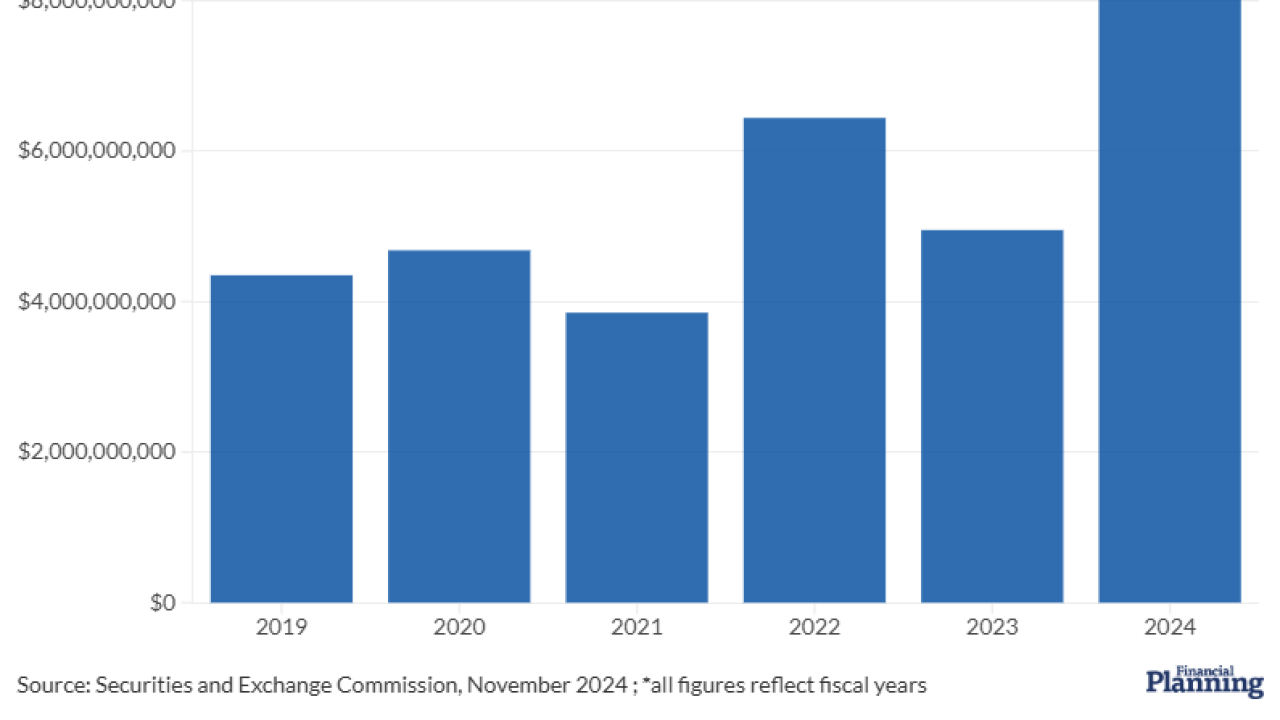Putnam Investments on Thursday made a "groundbreaking commitment" to provide retail investors much of the same information institutional clients often demand, according to an announcement by the firm, the California State Treasurer, and pension groups CalPERS and CalSTRS.
Putnam also agreed to launch a review of its proxy voting policy in relation to executive compensation as well as a number of other investor protections and disclosures. The measures go beyond the requirements Putnam submitted to in its settlements with regulators. As a result, Putnam will again be eligible to compete for CalPERS and CalSTRS business. The sister pension fund groups terminated their combined $1.5 billion relationships with Putnam late last year at the urging of the California Treasurer, who is a member of the board of both groups.
The three California groups worked closely with Putnam over the last three months to develop the new standards.
Putnam also agreed to disclose fees by providing a calculator on its Web site so that investors can figure out fees or potential fees on an investment. The Boston-based fund manager will also disclose the aggregate annual compensation paid to each fund's portfolio management team and divulge senior management's securities ownership.
The firm will also make public the commissions it pays to the largest broker/dealers for equity funds as well as key investment staff turnover. Lastly, Putnam will provide a "detailed analysis and rationale" of its fee schedule on its Web site.
SEC Charges Bridgeway
For $4.4M in Illegal Fees
The SEC has instituted settled enforcement proceedings against Bridgeway Capital Management and its president, John Noland Ryan Montgomery, in connection with more than $4.4 million in illegal performance-based fees that Bridgeway charged to three of its mutual funds. Bridgeway agreed to reimburse shareholders $4,407,700, plus prejudgment interest of $458,764 and pay penalties of $300,000. The SEC has also required the firm to hire experienced compliance personnel to ensure that Bridgeway applies its performance-based fee in accordance with the federal securities laws in the future.
According to the case, between July 1995 and this past March, Bridgeway charged investors fees based on the funds' present value, rather than their trailing five-year average. Because funds' current assets typically exceed a trailing period, this was an inappropriate manner in which to calculate performance fees, the SEC said.
"Mutual fund managers must ensure that advisory fees are assessed in strict accordance with the law," said Harold F. Degenhardt, administrator of the SEC's Fort Worth, Texas, office. "This is particularly true with respect to performance-based fees, which must be a fair reflection of a fund's performance during the entire performance period."
Bridgeway and Montgomery neither admitted nor denied the findings in the Commission's order. In fact, Montgomery has recently come to the fore in cries for mutual fund reform and even received pats on the back from Morningstar for how "investor-friendly" his funds were. His funds have always been known as some of the most transparent on the market, and his company donates half of its profits to charity.
Although the fund industry scandal has dragged on for a while, Montgomery's is the first case involving fees, which have become a hot issue.
ICI President Says Current
Challenges Hard to Shake
Investment Company Institute President Paul Schott Stevens recently told a group of journalists in Boston that the problems of the past year will not go away quickly. "Right now, there are more issues facing mutual funds than at any time in the past," Stevens said. "We have a real challenge to put the industry back on its feet." He also urged the Securities and Exchange Commission to more rigorously investigate hedge funds since they played such an integral role in the market-timing and late-trading scandal. "A lot of hedge funds had strategies designed to pick the pockets of ordinary fund investors," he said.
Hedge Fund Returns Edge Up Scant 0.14% in August
Hedge funds returned only a slight profit in August, according to the CSFB/Tremont Hedge Fund Index. Oliver Schupp, president of Credit Suisse First Boston Tremont Index, said a volatile August for domestic and European equity markets hurt returns. The index rose a scant 0.14% in August. The hedge fund index declined 0.31% in July but has climbed 2.75% in the first eight months of this year.





